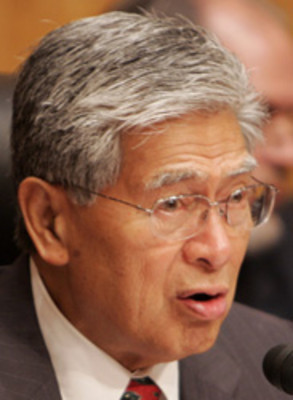Senate restricts pay bias lawsuits
WASHINGTON -- The Senate voted last week to reject a bill making it easier for American workers to sue their employers for pay discrimination.
Although the Senate voted 56-42 in favor of the legislation, 60 votes were needed to end the debate and move to a final vote.
All Democrats voted for it, while most Republicans voted against it.
The bill would have reversed a 5-4 ruling by the U.S. Supreme Court in 2006 which gives workers 180 days after a pay decision to file a lawsuit.
Known as the Lilly Ledbetter Fair Pay Act, the bill was named after the woman who lost the Supreme Court case.
Ledbetter sued Goodyear Tire & Rubber Co. of Gadsden, Ala., after discovering at the end of her 19-year career that she made far less than any of 15 men who worked at her level.
Supporters of the bill said women receive an average of 77 cents for every dollar paid to men.
They said the court ruling makes it unreasonably difficult for employees to seek justice against pay discrimination.
Opponents complained the bill would spark an avalanche of lawsuits based on stale discrimination claims.
Sen. John Ensign, R-Nev., voted against the bill to make it easier for workers to pursue pay discrimination claims.
Although he supported the bill, Sen. Harry Reid, D-Nev., voted against it to preserve his right as majority leader to call it up for another vote.
FILIPINO VETERANS GET BENEFITS
Military veterans from the Philippines who fought alongside U.S. soldiers against Japan during World War II would receive federal benefits, according to a 56-41 vote in the Senate.
The vote defeated an amendment by Sen. Richard Burr, R-N.C., to strip the Filipino provision from comprehensive legislation to boost veterans benefits.
Instead of spending $221 million on at least 13,000 Filipino veterans, Burr said, the money should be used to help Americans troops returning from Iraq and Afghanistan.
Sen. Daniel Akaka, D-Hawaii, led opposition to Burr's amendment.
Akaka and his allies said the money for Filipino veterans, whose average age is 84, is long overdue.
Reid voted for the Filipino benefits.
Ensign voted against them.
MEDICAID CUTS BLOCKED
The House voted 349-62 to block seven regulations proposed by the Bush administration to cut costs in Medicaid, the federal-state health insurance for the poor.
The federal government is projected to pay about $204 billion this year, or about 57 percent of Medicaid's costs.
Bush administration officials argued that states are using clever accounting procedures to avoid paying their fair share of Medicaid.
In addition, the administration seeks to limit services provided by Medicaid and deny eligibility for patients receiving other federal reimbursements.
States claim the regulations would cost them $50 billion over five years. Other critics said the cuts would diminish health care for children and low-income families.
Reps. Shelley Berkley, D-Nev.; and Dean Heller and Jon Porter, both R-Nev., voted against Medicaid cuts.

















